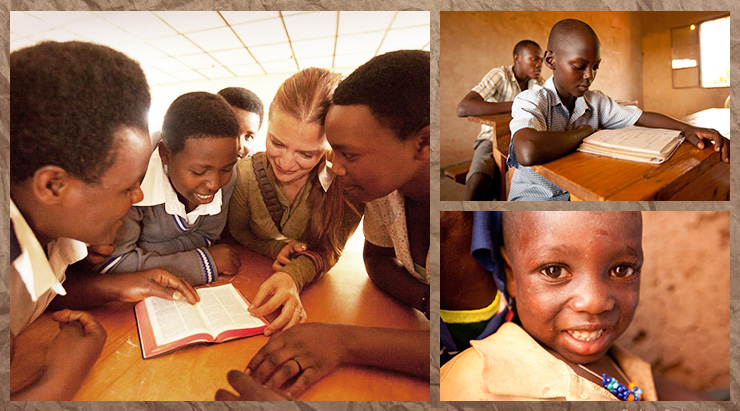BLOG
38 Benefits of Chess List
The Smartphone Anti-Venom
Why Play Chess?
27th July 2022
My son and I take our leather travel chess set all over the world and when we play games, we write on the back where, when, and who won. It will be my son’s prized possession when I am gone. I am giving him the gift of chess and here are the benefits of playing chess for you and your family too.
How to Successfully Outrun a Bear - You don’t have to be faster than the bear. You just have to be faster than most people around you. It’s the same with success in life. Our brains don’t need to be stronger than everybody else’s. We just need to be able to think stronger and faster and ahead of most of our peers and competitors. Does chess make you smarter? Yes, that’s the gift chess gives us.
The Greeks Were Dominant in War because of their Olympic Games. Brilliant military strategists got their soldiers to train hard and prepare for war, with a smile. They competed with each other throwing javelins, shot putting big rocks, wrestling, shooting arrows, running fast and jumping far. The result was they were more fit, skillful and prepared in times of war than their enemies. The Spartans won more often than their enemies and you will win more than your opponents in life if you practice chess.
Chess Gives Six Pack Abs
The reason 600 million people play chess and have been playing the “brain sport” since A.D. 600 is because it’s fun. And it just so happens to train and prepare the mind for our own battles and wars. Practicing and competing in physical sports is fun but usually only has temporary benefits. Training in chess is like giving your brain six-pack abs and strong legs for life. It’s like Jiu-jitsu for the mind and is the most preparing game a person can play.
Elite Athletes Play Chess
As the famous baseball philosopher, Yogi Berra, once said, “Baseball is 90% mental. The other half is physical”. Is it just a coincidence that a lot of the elite athletes in the world play chess to train their minds to make good split second decisions? Do strong minds play chess or does chess make minds strong? Do elite athletes play chess or does chess make athletes elite? They all say it helps them a lot. If college football players don’t do well in the Wonderlic Test (tests reasoning and decision making), they rarely get drafted. Here are a few of the elite athletes who play chess, and while traveling.
- Kareem Abdul Jabbar
- Larry Bird
- Barry Bonds
- Don Drysdale
- Ron Guidry
- David Robinson
- Lennox Lewis
- Jim Brown
- Kobe Bryant
- Wilt Chamberlain
- Roger Federer
And here is a list of the benefits of chess and below it are the explanations and scientific studies to help you understand how chess develops us Intellectually, Emotionally, Physically, and Relationally. Each of these bullet points is expanded further below the list.
11. Playing chess increases our processing speed - To evaluate a situation and act efficiently.
12. Chess improves reading comprehension and skills - To analyze a piece of text better and faster.
13. Playing chess improves math skills
14. Chess helps us see problem solve creative alternatives and unique solutions quickly.
15. It nurtures spacial skills and seeing patterns
Emotionally
16. Chess increases self awareness.
17. Learning chess grows our patience.
18. Playing chess develops creativity.
19. It strengthens our self control - Chess skyrockets rational thinking and stunts impulsive and emotional behavior.
Intellectually
1. Chess exercises both sides of the brain.
2. Playing chess increases IQ significantly.
3. It develops logical and critical thinking.
4. Chess naturally increases our capacity for memory.
5. Our attention, focus and concentration are strengthened when we play chess - a.k.a. the Smartphone Anti-venom.
6. Playing chess strengthens one’s imagination
7. It develops strategic thinking and tactical planning.
8. Chess grows our decision making ability - Weigh options and realizing consequences for actions
9. Chess players visualize in advance - For creating vision, strategy and plans
10. It fosters our fluid intelligence - Chess requires us to analyze problems and use reasoning to think through them.
20. Getting better at chess builds confidence and therefore self reliance.
21. Chess teaches us to be more flexible.
22. Brain games enhance common sense.
23. Chess relaxes us from the stresses of the day.
24. Valuing delayed gratification happens when playing chess.
25. It trains us to anticipate others’ moves.
26. Chess teaches us the end game and how to close deals.
Relationally
27. Chess makes it easier for us to make friends and socialize better.
28. We learn how to win and lose gracefully by playing chess.
29. Chess grows our empathy because we know how it feels.
30. Playing chess expands our perspective - “Theory of Mind” is seeing life (or the chess board) from other people’s perspectives.
Physically
31. Chess prevents, reverses or stops Alzheimers and Dementia symptoms
32. Chess aids in treating Schizophrenia
33. Playing chess magnifies therapy or rehabilitation exercises. Chess helps stroke victims recover faster.
34. Chess players control irritating ADD or ADHD symptoms better. I strongly believe these are not “disorders”, but rather, manifestations of creative gifting.
35. Chess experts are calm under pressure. It becomes second nature.
36. Chess is great occupational therapy - It occupies our minds from thinking about life’s difficulties.
37. Reduces stress, anxiety and panic attacks
38. Builds self esteem
Our job as parents is to raise up and train our kids to leave home successfully. To be solid, helpful, actively contributing and functioning members of society. The better we train them for that, the more success they will have. And learning chess can help them help us launch them well. Would you want to hire someone trained in these skills?
Your child will marry someone close to their same level in life. If you want your child to marry someone whose mind is trained strongly in chess, then it’s only right that you train your child to be good at these things too. If you want your son to marry a princess, he needs to be a prince. So how about you introduce your kids to chess and spend quality time with them to help create the prince or princess for someone else’s kid to marry. Do unto others as you would have them do unto you.
Today is a great day to start playing chess for the first time or to get back into it. Give the gift of chess. I am the owner of Saddleback Leather (the one writing this) and am an avid chess player and so developed a very cool Leather Travel Chess Set for myself that will be handed down for generations to come.
Chess helps us Intellectually, Emotionally, Relationally and Physically. How? you ask. Read on to see what I’m talking about in a more in depth and expanded way.
Intellectually
Increases IQ Like Einstein’s
Do smart people play chess or does chess make people smarter? IQ (Intelligence Quotient) basically measures one’s ability to reason and solve problems. The average IQ is about 100 and Einstein’s IQ was estimated at somewhere between 160 to 190. So when some studies claim you can raise your IQ 7 points by playing chess for just one hour, that’s impressive. Of course, I’m guessing that depends on if you just have an average IQ and if your learning curve at chess is still steep.
One study studied 19 different chess studies and found that 1,800 young inexperienced chess players saw big boosts to their IQ score because of playing chess regularly. They didn’t say how much. Another study of 4,000 Venezuelan students showed that playing chess significantly increased their IQ after just 4 months of playing chess.
Go With The Brain Flow
You know how when a basketball player gets “In the zone”, they almost can’t miss a shot. They are at peak performance levels and just can’t miss. Performers, artists and athletes all talk about being in a sort of time warp where everything just works and they just get it done. It’s technically called being in a “state of flow”. Does chess help great elite athletes or do elite athletes play chess?
Researchers hooked up experienced chess players for electroencephalograms (EEGs) and found brain scans showed the same theta waves were heightened during hard and intense chess matches as they are in performers who were “in the flow”.
Señor Chicken Legs
My old roommate, who I hope is not reading this, had chicken legs. He was at least 7 foot tall and 350 lbs. and I bet he could have picked me up with one hand
But one day we were goofing around and I leaned into him and started pushing him all around the room. I had strong stout legs and he had long skinny legs of the chicken variety. Apparently, he only valued working out his upper body.
Let the Juices Flow
The benefit of playing chess is that it works out both sides of the brain because the left side deals with visual and object recognition and the right side deals with analytical pattern recognition. The more and harder you use your brain, the more the juices flow. Actually, the “juices” are signals neurons send to each other.
Roots and Branches = Sharp Mind
Those signals travel on pathways called Dendrites (think tree roots or branches. Dendros means Tree in Greek). The more that signals regularly flow at a high rate, the more branches grow (dendritic growth) to handle the high flow and so form connections across the brain. The more pathways there are, the freer and faster the neural communication happens. Exercising with chess is like increasing the processing power of the body’s computer. It results in a sharp mind with fast and accurate reaction times and a strong memory.
Dried Up Udders For Old People
They say Dr. John Mitchell was as sharp as a tack and taught until he died at 96 years old. My dad said he had the whole Bible memorized. But when the brain isn’t stimulated, those pathways sort of dry up and we get dull. As it is with the udders of a cow, so it is with the brain. If you don't use it, you lose it.
But slow crusty and dusty thinking is reversible. Scientists found that old people who regularly play chess can improve their mental brain age by about 14 years.
Think Like a Man-Child
The prefrontal cortex is the last part of the brain to develop in kids and that makes sense. It’s the reason kids have to be so resilient. If you’re going to be dumb, you’ve got to be tough. It’s the part of the brain that helps us with self control, rational thinking, solid judgment and planning. Chess forces the prefrontal cortex to develop sooner and stronger so kids can think more strategically and critically. The more developed a person’s prefrontal cortex is, the fewer irresponsible and dangerous decisions they make.
Develops Logical and Critical Thinking like Socrates
Logical vs. Emotional Buyers
Emotional people fall for neat pictures, funny videos or schlicksters charming ways. Logical buyers say, “That’s cool and neat and all, but show me the facts. Will I be happy with this purchase or decision in a year? Will it last? Is it quality? The more you play chess, the better buying decisions you will make.
What is Logic? - Does this make sense? Is it logical? Does this idea or the evidence that was presented make sense against what I already know as fact; i.e. physical laws of nature, our experience, right and wrong, what history has taught us about the subject etc. The more logic you learn or common sense you learn, the easier it is to make good decisions or judgment calls
What is Critical Thinking? - It’s when you are critical of a thought or a situation and look for something wrong with it. Being critical in marriage is not good. Being critical in design and athletics is key. We all use critical thinking, but not everyone is good at it. Playing chess trains our mind to hear or see something and then analyze it, conceptualize it or evaluate it to see if it is logical or if it makes sense. The more experience, knowledge or understanding a person has around the subject, like numbers, laws of physics, right and wrong, etc. the easier it is to agree or disagree with the claim, belief or issue. Critical thinking helps us understand if something is fair, relevant, consistent, moral, right, clear or accurate. And chess boosts our critical thinking ability.
Teaches Common Sense
You’d be surprised at how many people aren’t very skilled in logical and critical thinking. Seems like it contributes to one's all around level of common sense. And the thing about common sense is that it’s not common.
Increases Memory
Strangely, experienced chess players have an uncanny ability to remember lists of words that they heard more than non-chess players. They’re also better at remembering numbers and sequences because their brain trained itself to specifically process patterns and complex chess positions. And they don’t even know it. It just happened by playing a lot of chess..
It Just Happens Automatically
We can’t help it or avoid it, but our brains automatically store and recall the repeated patterns and outcomes of our chess moves; the good, the bad and the ugly. We naturally remember which chess move to make the next time the situation arises and remember what to never do again. The more we play chess, the stronger our memory skills become.
Play Before Marriage
The summer before I got married, my brother moved into the house with me and we played quite a bit of chess. I ended up beating him 56 games to 52. We played 10 games next to our Bedouin tent in the Tunisian Sahara and he beat me about 8 to 2. We eventually remember the playing style of our opponent and predict their moves and the flow of the game. It’s not that we force ourselves to remember all of that. We can’t help it or stop it. Chess helps our brains store all of the information automatically.
Strengthens Attention, Concentration and Mental Focus
Chess - The Smartphone Anti-Venom
People who use their smartphones a lot have an average attention span of 7 whole seconds. A goldfish clocks in at 9. Regularly playing chess deepens focus and concentration because of the long matches and recalling concepts and strategies that worked and didn’t work in the past. If you can’t concentrate, you won’t succeed.
Love the 99 and Hate the 1
You might make 99 great moves and you’re about to win the game and then you lose focus and make 1 bad move because you weren’t paying attention. And then it’s game over. My youth pastor and I used to play a lot of chess when we were living down in Mexico and he used to tap his fingers on the table to distract me. And he would usually win. But I would often win when we played after midnight for some reason.
Play More Do More
Chess helps us focus with school assignments, daily tasks, deadlines and projects that require prolonged concentration. By the way, working in the early morning helps me type better and listening to instrumental music helps me concentrate later in the day.
Strengthens Visualization and Imagination for Creating Vision
No one is born with the ability to conceive a great vision, strategy or plan. It must be learned through practice and learning from others who do it.
Future Teller With Visions
Playing Chess helps one imagine or see or have a vision of the future in their head. It then helps them come up with a good sensible strategy and tactics to make it happen. And chess helps them lead the team to come up with a real life plan to execute the strategy so the vision becomes reality.
Close Your Eyes
For casting vision. “Okay, close your eyes and imagine this. You get out of the time machine three years from now and this is what you see in these different departments. Can you see the marketing area? Look at what they’re doing. What a great plan. And the finance area. Can you see it? Look at that inventory department. They’re doing this and that and this and that. Oh man, customer service. They’re incredible. See all the things they’re doing? This is what I see for this company of ours. Can you imagine it? Can you see the vision?”
Develops Strategic Thinking and Tactical Planning
Once the vision is cast, then comes a good strategy to achieve it and the tactical plans to carry out the strategy. Chess trains us to anticipate all eventualities and counter our adversary’s moves before they make it. Chess helps tremendously.
Chess Leads to Better Planning Skills
Chess requires careful contemplation; habit of mind. For planning, it’s huge. This is a contemplative game where players consider every option and spend their time anticipating and predicting every eventuality. Behavioral scientists gave chess players and non-chess players the Tower of London test, which is a cognitive functioning test with pegs and beads to measure their planning skills. The chess player group showed significantly better planning skills than the non-chess playing group.
More Than One Way to Skin a Chess Cat - Alternative Plans
Alternative chess moves or countermoves are almost always there, we just have to see them. And the more we train our minds to see them, the easier it is to recognize paths of escape or ways to get in. Chess helps us creatively find a way out of every situation or a creative way into one.
Sacrifice - Sometimes we plan to lose a battle to win a war. Jesus did it and I’m really glad he did. Give up a small chess piece to win a bigger piece or Kamikaze a big piece in order to tear down their defense. Chess sacrifice tactics are a way for you to get used to giving up a little to win a lot. Chess tactics give us options to sacrifice pawns or bigger pieces to create a better attack later on. Sometimes, we win the chess game because of our sacrifices.
Patiently Plan What To Do And Then Quickly Take Action - This is always a great way to play chess and generally a great rule in business. Great leaders hire slow and fire fast. They strategize and plan and then act quickly and decisively. They consider alternatives and how they work with the overall plan and then take action once they’ve sought wisdom and know it’s the thing to do.
Fosters Fluid Intelligence - Chess helps us analyze problems and use reasoning to think through them.
Perseverance - Never Say Die Flexibility
Just when we think we have our chess opponent cornered, they make a move we hadn’t thought of and escape. And we do it too. That builds in us a fighting, never give up, spirit. When you think you don’t have a chance, keep on keeping on and sometimes they’ll make a big mistake to level the playing field. Analyzing information carefully, looking at all sides of an issue, and forming well-reasoned conclusions develops problem solving chess skills.
Increases Processing Speed
Chess helps us to quickly evaluate a situation and make a good decision. It is an ability most people only see in the movies. But chess players see it all the time. If playing speed chess with a limited set time on a clock, processing speed is especially vital.
Improves Reading Comprehension and Skills
Chess players take in, understand, retain and can repeat what they read better.
What does this really mean? Chess helps people analyze a piece of text better and faster because of their heightened focus and enhanced analytical skills.
Studies prove that when kids learn and play chess, they become far better readers than most other kids and are quick to learn new topics too. A different study in 1991, of kids in an underperforming school district in New York City, showed that students who participated in playing chess had a drastic increase in their reading performance.
Improves Math and Calculation Skills to be Like Sir Isaac Newton
Many studies show chess significantly Increases our ability to learn math because it requires so much logical thinking. The more you practice chess, the more you increase your knowledge level. If this plus that is that, then it’s logical that this is that.
According to this chess study, highly developed mathematical ability in children aged 8 to 11 years old was tested within 2 groups of 500 students. 250 students in each group had chess lessons and online training and were given a task and 250 had no training and were given the task. The test measured students’ chess skills and also mathematical skills in addition to their regular education. Turns out the chess students crushed the non-chess students in the mathematical tasks.
Grows Decision Making Ability
Playing chess regularly helps children understand the consequences of their actions in a tangible way and develop in children important character traits. We all learn our choices have good and bad consequences, but it takes some people much longer to learn than others.
Research shows that children playing chess are more likely to understand the consequences of their actions and to think before you move, not move before you think.
Problem Solving Like Thomas Edison
Did you know Thomas Edision would write out the problems he needed to solve before rhe went to bed and then let his brain solve them through the night? In the morning, the answers were obvious. The whole chess game is just a series of problems to solve.
Each one proposes different problems you have to solve, step by step. We have to find a weakness, find a way in, plan 3 steps ahead and a lot of time think outside the box while doing it. And all the while, trying to solve a problem that keeps changing with every move of the opponent. And then we have to end by check-mating them to close the deal. It also works for solving new product ideas and reducing costs at work. This problem solving website may help your problem-solving skills too.
Nurtures Spacial Skills and Seeing Patterns
Spaced Out
Before chess players make most moves, they run through all of the options to see impact. This is thanks to their advanced spatial skills that let them recreate the same game in their brains.
Emotionally
Elevates Creativity like Leonardo da Vinci
Like Leonardo da Vinci’s helicopter design, creativity is making new things or creating new paths or ways of doing things that aren’t there yet. Making something out of nothing. It can be in speech, problem solving, product development, humor and also in the arts.
This chess study on students is very interesting. They say playing chess activates the right side of the brain responsible for creativity, which unleashes originality among players. They found a 6 fold increase in fluency (whatever that is), a 4 fold increase in flexibility and a 2 fold increase in originality.
Social Studies for Chess
Social Scientists at a school in India tested two groups of students by giving them a common item and asked them what else it could be used for. They also asked them to interpret certain patterns and meanings in abstract forms. One group was trained in chess playing and the other wasn’t. The chess players scored higher on the tests. They learned that chess increases students' abilities to use divergent and creative thinking. One of the benefits of chess is it requires one to be highly imaginative.
Creativity Breeds Creativity
Chess players have to exercise the creative muscles in their brain and that makes them even more creative. They are always finding themselves needing to creatively maneuver and think outside the box so they don’t lose pieces or get checkmated. Being forced to be creative makes you more creative.
Increases Resourcefulness
I need to tie this down or prop this up or make three extra fit or deliver this too. How can we do that? Chess players love to hear the question, “How can we do that?” because they’re trained to figure things out where it looks like there is no other option. And then it gives them satisfaction when they stand back and admire their handiwork.
Enhances Instincts
Chess makes it so that things just make sense and it’s kind of like teaching your kid to swim. You make them a lot more impervious to bad people and situations.
Activates Gullibility Meter
Instincts are why we feel uncomfortable or say, “Something just isn’t right here.” or “I don’t know why, but I don’t trust that man”. But little kids don’t have that because they haven’t lived long enough and have enough experiences to have those instincts. But playing chess gives them those experiences to practice in spades.
Not Too Good To Be True
If it’s too good to be true, then it usually is. How good are you at Perceptual Comprehension?
How gullible are you? How well and how quickly do you understand and perceive the gravity of the situation you are in. “Something just doesn’t feel right here. It seems too good to be true. It must be a trap.” Chess players fall into traps and lose pieces all the time and so that heightens their alertness and instinct. “It looks good and easy here. What am I missing?” There is a difference between calculation and pure instinct in chess.
Increases self awareness - One of the most important commonalities successful executives share is their ability to recognize their strengths and weaknesses. They know who to surround themselves with and what to say yes and what to say no to. Chess teaches self-awareness.
Strengthens our self control - Rational thinking learned in chess stunts impulsive and emotional behavior.
Grows Our Patience
Chess players grow in mental endurance because we have to wait for so long to take our turn. The games with my brother usually take 45 minutes. We get used to waiting.
Patient chess players win games - Chess players who rush do not win as many games. In cognitive neuroscience and evolutionary psychology, patience is considered a decision-making factor. Well thought out long-term thinking almost always comes with more rewards and advantages than quick short term thinking and actions do.
Impulsive Moves Are For Losers
Chess forces us to think rationally and patiently, and that kind of thinking stunts impulsive, reactionary and emotional behavior. Prioritizing logic and patience over emotions and reactionary gut feel wins more than just games. If a student can develop a rational perspective in life, it will help them avoid making impulsive heat of the moment decisions until they die.
Learn Delayed Gratification - A wise hunter will not shoot the first deer that steps out into the lush grassy meadow on the edge of the forest. They know they’ll be rewarded for their patience with the cautious big buck who is waiting in the forest letting the others test how safe the open meadow is first. Chess teaches patience.
Builds Confidence and Self Reliance
Chess builds our confidence directly when we beat other people and experience ourselves figuring out how to creatively solve chess problems and growing in our chess skills
Chess builds confidence intrinsically by doing good work and extrinsically by being recognized for that good work. “I’m not sure how you pulled this one off, but you did a great job. Thank you.”
Figuring things out in chess helps us to figure things out and be resourceful in the real world too. It helps us to creatively close deals, save a trip, win over friends and get recognized by others for figuring out how to do it. All the wins and losses in chess make you more confident and self-reliant.
And when you see yourself mastering skills and growing in your chess skill and wisdom, you will feel self assured attacking unknowns. Since you’re good at figuring out chess problems, you’ll feel good about trying to figure out new problems that may arise when you try new things.
Makes us flexible
Chess players have to constantly adjust their plans because our opponent makes moves we didn’t expect or plan on. Chess makes us more flexible.
Infuses fun
Chess is fun. It can take up hours of our day. Great for kids when school is out.
Relaxes us
We sit down quietly and slowly think about the chess game. Soon, the stresses of the day fade away
Teaches Us How To Close
The endgame in chess is so important. I was in a cafe in Portland, Oregon once called Coffee Time at 2 a.m. and was playing some chess player who was flapping his jaw on and on about how high his chess ranking was. He was so so cocky that I wanted to beat him more than I’ve ever wanted to beat anybody. So, I surprised him and myself by taking his queen and a few other key pieces. But at the end, he skillfully marched his pawns over to my side and got his queen. He then proceeded to dismantle me piece by piece. His end game was better than mine.
Relationally
Develops Empathy and Perspective
To anticipate the other person’s next move, we must develop the ability to see life (or the chess board) from another person’s perspective and plan against whichever decision they’re likely to make. Behavioral scientists call this ability to see from another’s viewpoint the “Theory of Mind.” This ability is key to having empathy and building healthy social relationships. This interesting study was able to prove chess develops that empathetic ability in children who play chess regularly.
We know how it feels to lose and to be trapped. That discomfort we get during a bad game of chess helps us to understand others feelings. It also helps us to ask questions of why they moved that piece and what they are up to. Chess develops empathy.
Play and Make Friends Globally
Chess Helps Us Socialize Except for playing chess with the computer, this sport always involves two people interacting with each other. And communicating and experiencing the same emotions. Bonding happens with men when they have a shared experience. The more intense the experience, the more bonding of the social relation. And a friendly chess game definitely qualifies. There are plenty of chess clubs around the world to play chess and make new friends at.
Join A Global Chess Community
600 Million people are estimated to play chess around the world and every country has a chess federation or equivalent. No matter where you are in the world, you can play chess. You don’t need to speak their language since chess rules are universal. But it’s fun to learn some new words when you do.
We Make New Friends At Chess Cafes
I’m from Portland, Oregon and it’s very common to see someone sitting in a cafe sipping their coffee, reading a book and waiting for a stranger to play them a game of chess on the board they have set up at their table. Coffee Time on N.W. 19th St. was a great place to play a game of chess with new friends until about 3 a.m.
Guadalajara Guadalajara!!
I was in Guadalajara one time with nothing to do, so I asked a taxi driver where I could find a game of chess. He gave me directions to a little cafe where there were always chess games going on. I got beat by a few great old men and made some new friends while I was at it. It was cool.
In Hot Water in Budapest
Another time, I was in Budapest, Hungary at some Roman Baths and there were chess tables sticking out of the hot water with people taking turns playing chess with friends and strangers. Chess is everywhere.
Chess Teaches Us How To Win And Lose Gracefully
Of course, everyone likes to win, but being able to win with kindness and grace is an important character trait. But it is just as important we learn to lose with grace too. And lose you will. But losing at chess is not devastating because it’s usually just a matter of 6 to 60 minutes and it’s less painful than losing at Rock Paper Scissors.
Losing Left and Right
If you play a lot, you’re going to lose a lot and get used to it. Yeah, if a chess game lasted 6 months and then you lost, it would definitely sting more. But sometimes you give a lesson and sometimes you take one. And after each game, it’s customary to shake hands and say, “Good game”. I even do that with my son. And when you lose, the perspective that develops is that you just became a better player.
Physically
Chess is great psychological therapy for crazy people and those with mental disabilities.
Chess can prevent, reverse or stop symptoms of Alzheimers and Dementia
Studies show people who exercise their brain playing chess to keep it strong and healthy in old age reduce the risk of neurodegenerative diseases. Learning a new language and memorizing things also grow new dendrites in the brain and reopen others to keep the juices flowing. Play chess with old people to keep them sharp.
Helps treat Schizophrenia
Doctors in Bron, France at the Center for Cognitive Neuroscience discovered that schizophrenic patients who played chess daily had their conditions improve compared to patients who didn’t play chess. The chess players showed increased attention, planning, and reasoning abilities.
Magnifies physical therapy and rehabilitation exercises
Neelakantha Bhanu Prakash, at age 5, was hit by a truck and fractured his skull. He was in a medically induced coma and needed a lot of surgeries to save his life. His parents were told he may be permanently impaired. So, Bhanu’s parents tried to keep his brain active, and active it was. He started solving math problems, puzzles, and playing chess and eventually became known as “The World’s Fastest Human Calculator”.
Because it is therapeutic in nature, a lot of therapists and doctors recommend their patients play chess to recuperate physical or mental illnesses. It enhances our mental processes and allows the mentally weak to strengthen themselves psychologically.
Chess and Autism and Therapy
Regular chess playing develops the brain and fine motor skills in autistic or developmentally disabled people. The mental work required to play chess can also improve cognitive and communication skills. Some counselors and therapists play chess with their patients to be more effective in their therapeutic relationships. It helps them see how their patients react to stresses and challenges in the match and then evaluate responses to learn why they responded the way they did.
Chess strengthens decreases ADD or ADHD symptoms
ADD and ADHD are not “disorders”, but rather manifestations of creative gifting. I wrote about that at the bottom of our Leather Portfolio page. Their minds are taking in their surroundings, solving multiple problems and creating. But ADD and ADHD type people can be pretty irritating. Chess can make ADHD qualities more controlled and less irritating
In 2016, social scientists studied 100 school aged children who had a tough time focusing and made their teachers want to shoot them. Part of the teachers’ treatment was regular chess. Kids who participated experienced a 41 percent decrease in both over activity and inattentiveness over time..
Occupational Therapy
Chess occupies the mind from thinking about life’s difficulties. Some people garden. Others do crossword puzzles. You should consider playing chess.
Panic Attack Therapy In Your Pocket
Playing with Chess apps at easy levels causes it to be just engaging and challenging enough to create calm and occupy the mind from thinking about unpleasant things. It also stops unpleasant feelings from flowing.
In one 2017 case study, an individual who had regular panic attacks was able to use a chess app on his phone to create a sense of calm and keep a panic attack from getting out of control. Difficulty levels 2 to 4 were just right for him.
Great Schools Encourage Chess
Well rounded healthy schools always have chess available to students before, during and after school. Their programs are extremely popular because chess is cheap, fun and anyone can play it and beat anybody, regardless of physical giftedness. Children of different ages, backgrounds, and even with special needs enjoy chess.
The St. Louis Chess Club discovered that 65% of students looked forward to going to school more on days when they got to play chess.
Someone studied 450 5th graders in New Brunswick, who played chess, and found their test scores significantly higher than those who didn’t play chess.
African Chess at School
In 2014, we took some of our employees and their families to visit Rwanda in East Africa. And we brought 29 tournament travel chess sets to Africa New Life’s school there. I found the ones on our team who knew how to play chess and we went and taught the kids of the school. And we taught them so they would likewise teach their friends at the school. In 2019, we went back and they were still playing chess in their free time. We didn’t do any formal studies, but is it that New Life Christian Academy gets the smartest kids in the country to go there or does it have something to do with the fact that there is a chess culture there?
Mexican Chess at our School
Now we are doing the same thing with chess at the school we started for our factory worker’s kids. This next school year will have a strong emphasis on chess with tournaments and prizes. Of course, we use an American Homeschool curriculum already, so they’ll already be advanced, but let’s see what it does for them. I suspect it’s going to further revolutionize their minds.
Mexican Chess at our School
Now we are doing the same thing with chess at the school we started for our factory worker’s kids. This next school year will have a strong emphasis on chess with tournaments and prizes. Of course, we use an American Homeschool curriculum already, so they’ll already be advanced, but let’s see what it does for them. I suspect it’s going to further revolutionize their minds.
How To Teach Kids To Play Chess
Should we let kids beat us? Absolutely!! But you need to crush them too. It’s important. But there are other ways to teach kids to play chess so they win too. If you’re not sure how to play, then go on Youtube and learn quickly. And there are several free online courses to teach the basics of moves and generally good rules to keep in mind when you move.
Best Ages for Chess Play with your old parents and young kids to help them. Teachers and chess experts agree that generally around 10 years old is the best time to introduce kids to chess. But, some at 4 or 5. Cross and I have been playing chess since he was 5 years old, but sometimes it was a struggle to play more than one whole game. Now that he’s 13, we play 3 or 4 straight games sometimes.
Here are 7 tips for teaching kids to play chess
1. Show them Inspiring Chess Movies In Search of Bobby Fischer, Magnus, Brooklyn Castle, and The Queen of Katwe all feature kids learning chess and becoming great.
2. Make a big deal about little kids beating you like you’re really mad, but with a smile. Grab them and say, “No one beats me at chess. You’re really going to pay for that now!” and then chase them around and grab them and wrestle on the ground. Then give them a noogie and punch them softly. And then get up and walk away grumbling. And then when you beat them, act afraid of them as they beat you up. That positive reinforcement reward will make them want to play over and over again.
3. Give yourself a time limit. Play with a clock but don’t give them one.
4. Switch sides with the kid during the game. This mixes it up and makes it interesting for both of you. It challenges both of you.
5. Play without some pieces on your side with them having their full set of pieces. As they grow stronger in their chess ability, start adding pieces back on. They’ll never forget the picture in their mind when the chess board is set up with a full set on both sides.
6. Let your kid take back a move when they see your move until they get the hang of the game. They will work on rework and see your strategic thinking.
7. No touchie touchie - When they get older and get the hang of the game, if they touch the piece they have to move it. No exceptions.
Here are 7 tips for teaching kids to play chess
Strong and Fat vs. Weak and Skinny, Night or Day
You can play anywhere and at any time. Play in your town or with foreigners online, night or day. There’s always a game for you. You don’t need to be tall or fast or strong or coordinated. Anyone can play and it’s easy to meet a stranger and make friends playing a game. You can play with your kids, your neighbors or your neighbors kids. Doesn’t matter.
Quality Time
Great memories with mom or dad, grandma or grandpa. My son and I take our leather travel chess
Makes You Look Intelligent
If you have low self-esteem and you try hard for people to think highly of you, then start playing chess. You may end up loving it.
Healthy friendships
You want your kids to make friends with chess players because they think about the consequences of their actions. Bad people don’t think about them.
Give the gift of chess today.
Posted by Dave Munson on 27th July 2022
Posted by Dave Munson on 31st March 2022 Updated 2024
Posted by Dave Munson on 2nd June 2021
Sign up to stay updated on Saddleback Leather products, events, and stories.
The Saddleback Leather Newsletter is where you’ll get the latest news, first looks at new designs, and unprofessional and not funny stories delivered straight to your inbox.











